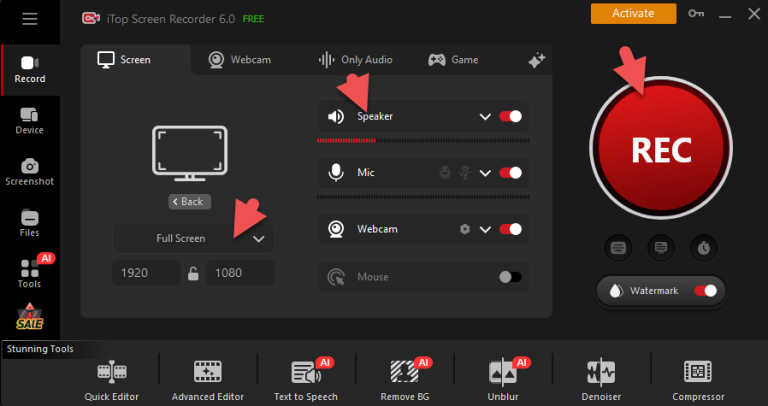Test Yourself: Can You Spot These 5 Common Slot Scams?
Think you can recognize slot machine scams? These five scenarios are based on real situations that cost players thousands of dollars. Before reading the explanations, try to identify what’s wrong with each scenario. Your scam detection skills might determine whether you protect your bankroll or become another victim.
Test yourself with these scenarios, then check the explanations to see how well you can protect yourself from slot machine fraud.
Just as legitimate platforms like Casino Lukki maintain transparency through proper licensing, secure payment methods, and established game providers, spotting scams requires understanding what legitimate operations should look like compared to fraudulent alternatives.
Scenario 1: The Hot Machine Promise
You’re playing at a new online casino when the live chat agent contacts you unprompted: “I see you’re playing slots! Machine #47 is running hot today—three players hit jackpots in the last hour. I can transfer you to that exact machine if you increase your bet to $5 per spin. This is insider information I’m sharing because you’re a valued player.”
The agent provides screenshots showing recent big wins on the machine and offers to lock you into that specific slot for 30 minutes. They mention this is a limited-time opportunity available only to VIP members.
What’s the scam? (Try to identify before reading the explanation)
The Answer: This is the “hot machine” scam. Online slots use random number generators—each spin is independent regardless of recent results. No machine “runs hot” or is “due” for payouts. The agent is either:
- Trying to get you to increase bet sizes for bigger losses
- Moving you to a rigged or lower-RTP version of the game
- Creating false urgency to prevent careful analysis
- Running a completely fake operation
Legitimate casinos never contact players to suggest specific machines or betting strategies. RNG games don’t have “hot” or “cold” streaks that can be predicted or exploited.
Scenario 2: The Progressive Jackpot Guarantee
A casino emails you about their “Progressive Protection Program.” They explain that progressive jackpots must hit by specific amounts due to gaming regulations. Their system tracks when progressives are “overdue” and guarantees you’ll win within 100 spins if you join their VIP program for $500.
The email shows charts of historical jackpot data proving their system works. They offer a “money-back guarantee” if you don’t win within the promised timeframe. Several testimonials from “recent winners” are included with photos and payout amounts.
What’s the scam? (Your diagnosis?)
The Answer: This combines multiple scam elements. Progressive jackpots have no predetermined hit points—they’re random events. Key red flags include:
- Asking for upfront money to access “guaranteed” wins
- False claims about gaming regulations requiring jackpots to hit
- Fake testimonials and manipulated data
- Promising guaranteed outcomes in random games
Real progressive jackpots are completely random. No system can predict when they’ll hit, and legitimate casinos never charge fees to access progressive games.
Scenario 3: The Bonus Round Manipulation
You’re playing a popular slot when you notice something odd: bonus rounds trigger frequently, but they always pay slightly less than your total bet amount. After 20 bonus rounds over two hours, each one nets between 80-95% of your triggering bet, never exceeding 100%.
The game statistics show a 96% RTP, and the bonus round frequency seems normal compared to other versions of this game. However, you’re slowly losing money despite hitting bonuses constantly. The game feels “almost” generous but never quite pays enough.
What’s the scam? (What’s happening here?)
The Answer: This is bonus round manipulation using rigged software. The scammer has modified legitimate games to:
- Trigger bonuses frequently to create the illusion of winning
- Program bonus rounds to always pay less than break-even amounts
- Maintain overall RTP statistics that look legitimate
- Create psychological satisfaction through frequent “wins” that are actually losses
Legitimate bonus rounds have variable payouts with real chances of significant wins. Consistently low bonus payouts despite frequent triggering indicates rigged software.
Scenario 4: The Demo Mode Deception
A new casino offers incredible welcome bonuses and lets you try games in demo mode first. The demo versions are incredibly generous—you hit multiple jackpots, bonus rounds pay huge amounts, and you rarely have long losing streaks. Excited by these results, you deposit money to play for real.
However, real money versions of the same games behave completely differently. Bonuses rarely trigger, jackpots never hit, and your bankroll disappears quickly. When you complain, support claims you’re just experiencing “normal variance” and that demo games use identical software.
What’s the scam? (How are they fooling players?)
The Answer: This is demo mode manipulation—using different game versions for free play vs. real money. The scammers:
- Program demo versions to be extremely generous
- Use standard or rigged versions for real money play
- Create false expectations about game performance
- Exploit players’ tendency to assume demo results predict real money results
Understanding the difference between legitimate and manipulated gaming experiences helps identify these issues, similar to how proper analytical tools like aviator online bet provide transparent, verifiable gameplay mechanics rather than deceptive demonstration modes.
Legitimate casinos use identical RNG software for demo and real money versions. Dramatic differences in performance between modes indicate fraud.
Scenario 5: The Technical Glitch Excuse
You hit a massive jackpot worth $12,000 on a slot machine, but when you try to cash out, the casino claims there was a “technical malfunction.” They point to terms stating that malfunctions void all wins and offer you a $50 “goodwill” credit instead.
The casino shows you logs indicating the game experienced an error during your winning spin. They claim this invalidates the jackpot under gaming regulations and offer to let you replay the spin with a smaller bet as compensation.
What’s the scam? (Real malfunction or excuse?)
The Answer: This is the “malfunction excuse” scam used to void legitimate wins. Red flags include:
- Malfunctions conveniently occurring only on large wins, never losses
- Refusing to provide independent verification of the alleged technical issue
- Offering tiny “goodwill” payments compared to the voided win
- Using vague terms about gaming regulations without specific citations
Legitimate casinos have strict protocols for actual malfunctions. Real technical issues are rare and typically affect multiple players simultaneously. Gaming authorities require detailed documentation for voided wins. Most importantly, licensed casinos carry insurance for technical failures and honor legitimate wins even when minor glitches occur.
How Did You Score?
5/5 correct: Excellent scam detection skills. You understand how slots really work and can spot manipulation attempts.
3-4/5 correct: Good awareness with some knowledge gaps. Review the scenarios you missed to strengthen your defenses.
1-2/5 correct: Vulnerable to slot scams. Study these techniques and learn more about legitimate slot operations before playing.
0/5 correct: High scam risk. Consider avoiding online slots until you better understand how they should operate.





